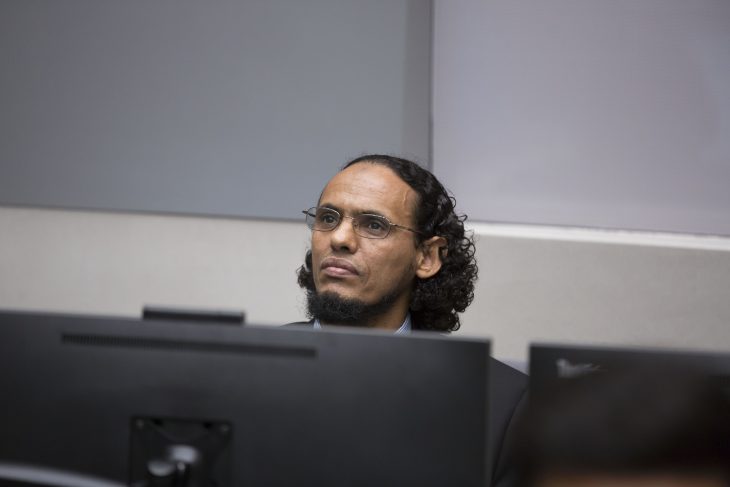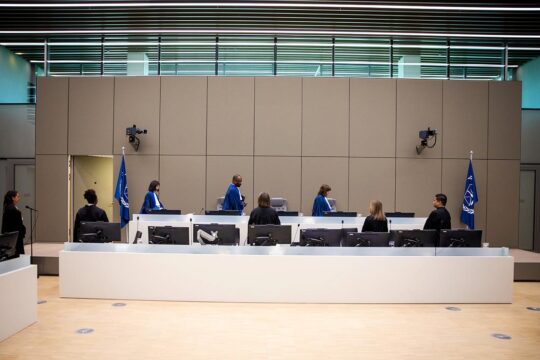The week in transitional justice was marked by the trial before the International Criminal Court of Malian jihadist Ahmed Al Faqi Al Mahdi, accused of having destroyed nine mausoleums in Timbuktu, the “city of 333 saints”. For the first time in the ICC’s history, destruction of cultural heritage is recognized as a war crime, and for the first time also an accused person has pleaded guilty.
“Cultural heritage should bring people together rather than tearing them apart,” Marc-André Renold, Director of the Art-Law Centre at the University of Geneva, told JusticeInfo in an interview. “In a conflict-affected society, cultural heritage can help reconciliation, I am absolutely convinced of that. Cultural heritage carries a very strong symbolic value.”
And Renold stressed how the population of Timbuktu reacted at the time: “We know what Malians did to protect the manuscripts [during occupation of Timbuktu by jihadist groups nearly 400,000 manuscripts were discreetly evacuated by the inhabitants to keep them safe].”
Nevertheless this trial, which aims to serve as an example, was cut short owing to Al Mahdi’s guilty plea and the reduced nature of the charges (there is one single war crimes charge against him).
The trial hearings lasted only three days, leaving victims frustrated by this speedy trial which did not allow a thorough examination of the jihadists’ motives, nor their occupation of northern Mali as a whole.
Details of the plea bargain between defence and prosecution, which could lead the judges to pronounce a more lenient sentence on Al Mahdi, have not been made public, and he has not been charged with other crimes of which he is suspected. For example, one video shows him whipping a couple in the name of Sharia Law.
Other international courts such as the International Criminal Tribunals for Rwanda and former Yugoslavia have in the past used guilty pleas to speed up trials and also for economic reasons. As we know, the ICC is often accused of being particularly slow and inefficient, with trials dragging on. But a half-way house could no doubt be found.
In another pertinent interview with JusticeInfo, French jurist Didier Niewiadowski expressed his disappointment with the lack of progress on transitional justice in the Central African Republic (CAR). “Despite the obvious potential benefits of setting up transitional justice mechanisms, I don’t think the current government envisages for a moment doing this,” he told JusticeInfo. He pointed as an example to the recent release of Jean-Francis Bozizé, son of the ex-president, who is accused of serious crimes, and the fact that “warlords of the ex-Séléka circulate freely although there are arrest warrants for them too, since they have victimized innumerable Central Africans. Don’t let us forget that nearly a million Central African refugees and displaced people are living under canvas in the greatest hardship”.
Niewiadowski fears that the international community will continue to fund illusory transitional justice programmes in this troubled country and that “the CAR will continue its inexorable falling apart, with the country carved up into a multitude of fiefdoms like in Somalia”.
On a more positive note, Colombia’s government and main rebel movement FARC finally reached a peace agreement on Wednesday in Havana after four years of negotiations. This accord aims to end a civil war that has lasted half a century, leaving 260,000 people dead, 45,000 missing and 6.9 million displaced, according to official figures. The agreement, which is to be put to a referendum on October 2, contains extensive transitional justice measures, including disarmament of the rebels, judicial procedures for suspected perpetrators of atrocities on both sides, and reparations. But the path to real reconciliation will be long, as explained in an article of analysis from our partner Oxford Transitional Justice Research. “Given the fragility of the peace process, debates over a truth commission, much like debates over the FARC’s incarceration may leave the country more fractured than united, writes Jamie Rowen of the University of Massachusetts, Amherst.







